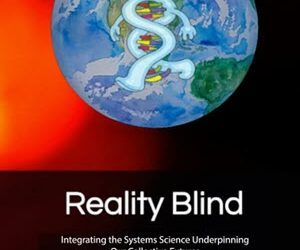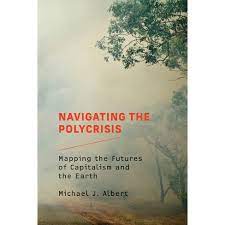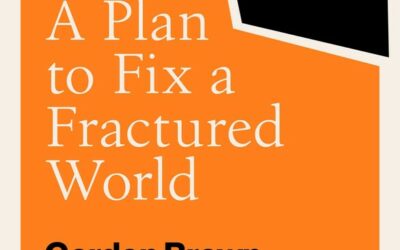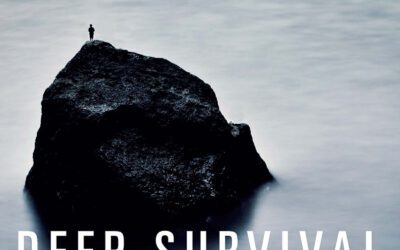by Nate Hagens Reductionism is quite useful, but both dangerous
and insufficient. A science-based worldview which looks at all the
puzzle pieces at once can make sense of things. The important
knowledge now resides between the disciplines.
Noam Chomsky and Andrea Moro on the limits of our comprehension
“The sudden awareness of something that calls for an explanation, once the fog of habit has lifted, seems to be the real stuff revolutions’ sparkles are made of.”
Navigating the Polycrisis
By Michael J. Albert…A much-needed work of global futures studies, Navigating the Polycrisis brings the rigor of the natural and social sciences together with speculative imagination in order to illuminate and shape our global future.
Permacrisis
By Gordon Brown, et al in Permacrisis….The longer a problem goes unresolved, the worse it will get; that’s what happens in a permacrisis – and that’s why we must act now.
Spaces for Growth: Learning our Way out of a Crisis
By Graham Leicester and Maureen O'Hara In normal times we tend to go about our lives oblivious to the structures, institutions, processes and shared values that shape our behaviours. In powerful times like ours, deep structures of love, power and justice are brought...
Deep Survival: Who lives, who dies, and why
Laurence Gonzales’s bestselling Deep Survival has helped save lives from the deepest wildernesses, just as it has improved readers’ everyday lives. Its mix of adventure narrative, survival science, and practical advice has inspired everyone from business leaders to military officers, educators, and psychiatric professionals on how to take control of stress, learn to assess risk, and make better decisions under pressure.
More in this category

Everything Can Collapse: A Manual for Our Times
co-authored by Pablo Servigne and Raphaël Stevens, provides “a valuable guide to help everyone make sense of the new and potentially catastrophic situation in which we now find ourselves.”

The Road
OK, this is Cormac McCarthy: it's dark and visually searing. If you’re up for a bleak vision of the future in the hands of an exceptional writer, give this a go. And be forewarned that you're unlikely to erase the images of the father pushing the shopping cart from...

The Dog Stars
By Peter Heller Hig’s wife is gone, his friends are dead, and he lives in the hangar of a small abandoned airport with his dog, Jasper, and a mercurial, gun-toting misanthrope named Bangley.But when a random transmission beams through the radio of his 1956 Cessna, the...

The Upside of Down: Catastrophe, Creativity, and the Renewal of Civilization
By Thomas Homer-Dixon The Upside of Down by Thomas Homer-Dixon takes the reader on a mind-stretching tour of societies' management, or mismanagement, of disasters over time. From the demise of ancient Rome to contemporary climate change, this book analyzes what...

The Uninhabitable Earth
This book is filled with accessible prose & technical science and woven together by storytelling that gives human context to its central question: “What if climate change is worse than we think?” As someone who consumes climate information in bite-sized pieces, it...

Falter: Has the Human Game Begun to Play Itself Out?
By Bill McKibben Falter tells the story of these converging trends and of the ideological fervor that keeps us from bringing them under control. And then, drawing on McKibben's experience in building 350.org, the first truly global citizens movement to combat climate...

Surviving the Future: Culture, Carnival and Capital in the Aftermath of the Market Economy
By David Fleming Surviving the Future is a story drawn from the fertile ground of the late David Fleming’s extraordinary Lean Logic: A Dictionary for the Future and How to Survive It. That hardback consists of four hundred and four interlinked dictionary entries,...
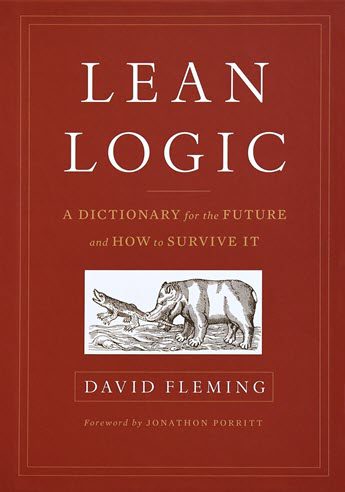
Lean Logic: A Dictionary for the Future and How to Survive It
David Fleming's Lean Logic: A Dictionary for the Future and How to Survive It leads readers through a stimulating exploration of fields as diverse as culture, history, science, art, logic, ethics, myth, economics, and anthropology, comprising four hundred and four...

Resilience: Why Things Bounce Back
In times of upheaval, why do some people, communities, companies and systems thrive, while others fall apart? That’s the question at the heart of an exciting new field, and an urgent new agenda for the 21st century. In Resilience, Andrew Zolli and Ann Marie Healy...

The Community Resilience Reader: Essential Resources for an Era of Upheaval
The Community Resilience Reader: Essential Resources for an Era of Upheaval, Edited by Daniel Lerch, combines a fresh look at the crises humanity faces, the essential tools of resilience science, and the wisdom of activists, scholars, and analysts working on the...

Collapse: How Societies Choose to Fail or Succeed
Collapse: How Societies Choose to Fail or Succeed by Jared Diamond includes four sets of studies. Seven chapters discuss some of the clearest, most familiar, most striking examples of past collapses: the ends of Polynesian societies on Henderson and Pitcairn Islands,...
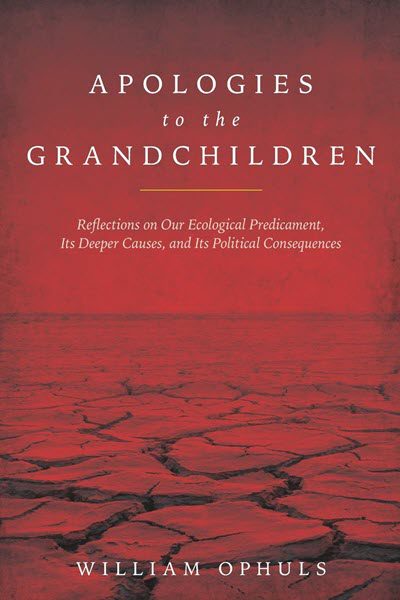
Apologies to the Grandchildren: Reflections on Our Ecological Predicament, Its Deeper Causes, and Its Political Consequences
Apologies to the Grandchildren by William Ophuls is a collection of essays that throw light on questions of ecological collapse, the connection between the ecological crisis and the breakdown of liberal democracy, and what society will look like when we exhaust solar...

Resilience Thinking: Sustaining Ecosystems and People in a Changing World
Written by Brian Walker and David Salt. Published by Island Press, Canada 2012

Enlightenment Now: The Case for Reason, Science, Humanism, and Progress
In this elegant assessment of the human condition in the third millennium, cognitive scientist and public intellectual Steven Pinker urges us to step back from the gory headlines and prophesies of doom, which play to our psychological biases.

On the Future: Prospects for Humanity
Renowned scientist and bestselling author Martin Rees argues that humanity’s prospects depend on our taking a very different approach to planning for tomorrow.


